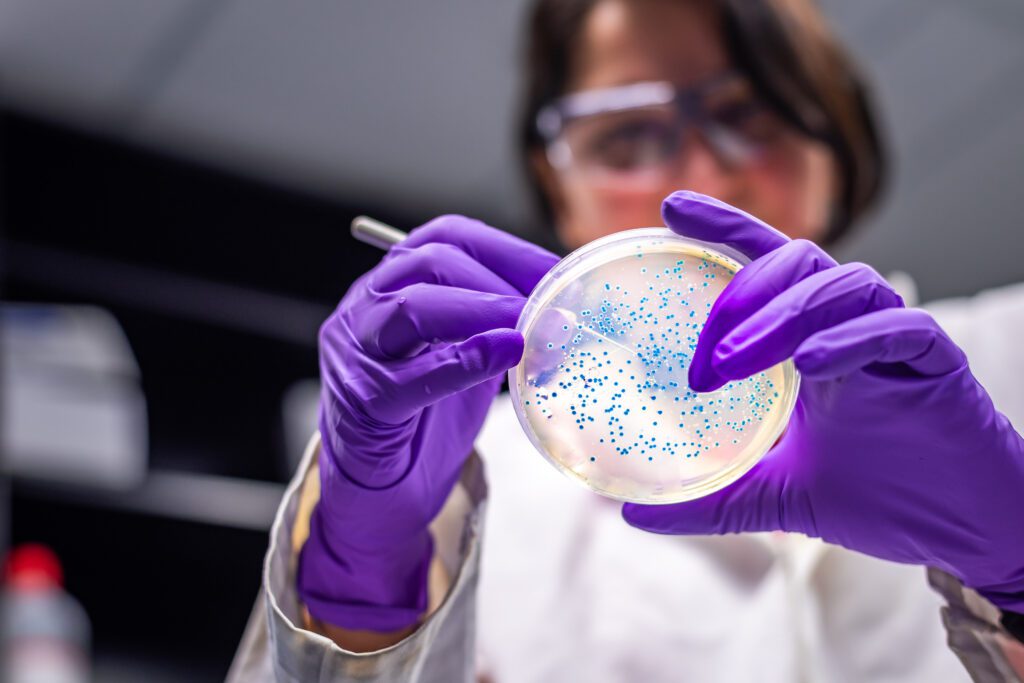Since March 2020, we’ve been living in unusual – and in some respects – unprecedented times.
As a result of the Covid-19 pandemic, a significant portion of the Northern Ireland workforce has been working from home and unfortunately, that provides the perfect environment for Legionella to create havoc in your company’s premises.
While legionella risk assessments might not be a priority given the two years we’ve all endured, it’s vital to understand the risks involved with Legionella.
Today we’re looking in-depth at Legionella, what the disease is and what causes it.
We’ll also explain why legionella risk assessments are so critical.
As a Northern Ireland business, you’re expected to comply with all relevant health and safety regulations, so we’ll explain what is required from you under law.
We will also provide you with six tips on how to prevent Legionella before it becomes an issue.
Finally, we’ll explain how to get started with a popular Legionella Risk Assessment.
What is Legionella?
Legionnaire’s disease is a deadly lung infection common in hospitals, hotels, offices, spa pools, air conditioning systems, taps, showers and humidifiers.
The number one source of Legionella is the public drinking water supply.
The Mayo Clinic describes it as: “a severe form of pneumonia – lung inflammation usually caused by infection. It’s caused by a bacterium known as Legionella.”
Legionella is an airborne disease.
People are more commonly infected after inhaling tiny droplets of the legionella bacteria rather than from drinking infected water.
While an uncommon disease, Legionella bacteria can be deadly.
As a result, you should prioritise getting Legionella Risk Assessments carried out at least every two years.
Regular risk assessments will identify any potential bacterial threats and ensure you’re complying with all Northern Ireland health and safety regulations.

What causes Legionella?
Legionnaires’ disease is bacteria commonly found in our drinking water systems.
Usually, exposure to Legionella bacteria is exposure to contaminated water from showerheads, ice machines and faucets.
And while Legionella bacteria can be found in water at various temperatures from 0 degrees Celsius up to 60 degrees Celsius, it is primarily found in hot water services.
Hot water services under an increased risk include hot tubs, air conditioning plants and evaporative cooling water systems.
Legionella bacterial growth usually occurs at temperatures between 20 and 25 degrees Celsius in stagnant water, such as empty business premises during the pandemic.
The causes of Legionella are clear, and the expectation is on you as a business owner or employer to maintain a safe water system.
Why are legionella risk assessments important?
As we mentioned earlier, an office or building not in use for an extended period due to the pandemic can provide the ideal environment for Legionella.
That’s because when buildings and plumbing systems are left idle, it can “increase the risk for growth and spread of Legionella”.
But there’s some good news; Legionella is mostly preventable if all of your building’s air conditioning and water systems are adequately maintained.
That’s where the benefits of legionella risk assessments become so important.
Legionella risk assessments and temperature checks should be carried out monthly.
And if you’re responsible for healthcare premises, then a Legionella Risk Assessment should be carried out annually.

What’s the law in Northern Ireland regarding Legionella?
In Northern Ireland, it is your legal responsibility to obtain a Legionella Risk Assessment and Legionella Risk Management Programme.
In addition, you are expected to implement and manage precautions and keep all of your records.
In other words, the onus is on you to ensure you’re complying with all the Northern Ireland legislation.
6 things you can do to prevent Legionella
1. Carry out regular Legionella Risk Assessment
This will identify any potential issues before they become a problem and give you peace of mind that you’re doing everything within your power to prevent Legionella.
2. Ensure monthly temperature checks are carried out
Checking temperatures regularly means you can identify and prevent any issues before they become dangerous.
3. Priortise an annual cleaning, disinfection and chlorination of cold water storage tanks and get a CWST certificate
This is your best defence against legionella bacteria finding the right conditions to spread and cause potentially serious illness.
4. Ensure there is consistent and frequent flushing through of water outlets in your premises
Regular flushing in your building prevents legionella bacteria from finding favourable conditions to grow and spread.
5. Carry out regular servicing of all equipment
This includes Thermostatic Mixing Valves, which require annual servicing for the right set temperatures checks, cleaning and descaling.
A regular servicing of all your equipment also ensures that parts are replaced due to damage and everyday wear and tear.
6. Arrange for water sampling to be carried out
The best form of defence is to carry out checks regularly and identify any possible threats.
Enviro FWA can do this for you, and we can include checks for Legionella, Pseudomonas Aeruginosa, E-Coli, Total Coliforms, and Total Viable Count.

What if I need help to carryout regular legionella risk assessments and checks?
If you need help, then Enviro FWA is here when you need us.
Our popular Legionella Risk Management Programme will help you manage the risk from Legionnaires’ Disease.
The programme is developed in accordance with the guidelines and recommendations from the UK Health & Safety Executive L8 and the Health and Safety Commission (HSC).
By consistently carrying out one of our risk assessments, you’ll be in a much better position to reduce liability should any legionella issues arise.
After your site survey, our highly-trained risk assessors will send you a comprehensive report identifying risks.
The report will also include any remedial action you need to take to ensure you continue meeting current legal requirements and standards.
You will also receive a schematic drawing of your water system along with a guide that explains how to comply with the Associated Code of Practice (ACOP L8).
Enviro FWA specialises in Legionella Risk Assessments in Northern Ireland and Dublin.
We pride ourselves upon understanding our clients’ needs and forging partnerships which enable
the smooth running and compliance of their businesses
Breakdown emergency callouts – 24/7 – 365 days
Contact 077 9661 4886